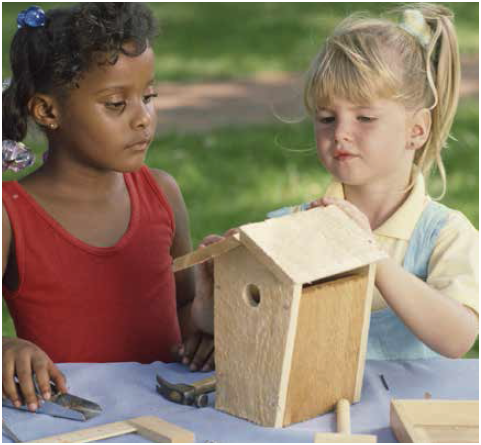Editorial by Meg Kerr, Senior Director of Policy
When my daughter was in third grade, I agreed to coach a Destination Imagination team. This program for young students is designed to foster creativity and team building. There were eight third-graders on my team, each one bright, energetic and full of their own ideas. The first meetings were chaos. The kids talked over each other, each wishing the others would just go away so they could work on the project in their own way. The children didn’t know how to listen to each other and they certainly didn’t respect each other’s ideas. I worked with the same team for three years. At the end, they worked amazingly well together, demonstrating collaborative leadership at its best.
Getting organized and working together is currently at the forefront of the national news. The horrific school shooting in Florida is the most recent event to spur organized protest and action; this time by students. Many are too young to vote, but not too young to express their outrage. Together.
The Rhode Island environmental community has been collaborating together for decades. In 1972, Audubon’s Executive Director Al Hawkes helped form the Environment Council of Rhode Island (ECRI) as a non-profit dedicated to environmental protection in our state. In creating ECRI, Al recognized that Audubon’s voice would be amplified by working with other like-minded people and the environmental community would have greater impact on the state’s laws and policies. ECRI fought the construction of a nuclear power plant in Charlestown and advocated for the creation of the Narragansett Bay Commission to manage the greater Providence sewage system. Over the years, ECRI has worked closely with the Rhode Island legislature, lobbying for environmentally friendly legislation and creating the bi-annual green report card to hold legislators accountable. The Council holds a legislative coffee hour early in the session to introduce priority issues and organizes Earth Day at the State House (sometimes referred to as Lobby Day) where ECRI members lobby their local legislators to support the environmental agenda.

In 2005, the Rhode Island Foundation challenged ECRI to strengthen its power by identifying a specific issue of state importance to work on together. ECRI created the Coalition for Water Security, focused on statewide freshwater supply management and balancing the need for water supply with ecological requirements. More than a dozen ECRI organizations worked together to address the overuse of drinking water supplies for lawn irrigation in residential communities, which was dangerously reducing flow in some rivers. The Coalition passed legislation to address water management and in 2008, ECRI shifted to the issue of transportation forming the Coalition for Transportation Choices, this time advocating for robust public transportation and sustainable funding for RIPTA. In 2014, ECRI moved its attention to stormwater management and green infrastructure, forming the Green Infrastructure Coalition. The goal was to ensure that communities create sustainable funding for stormwater management to implement projects like rain gardens and bioswales.
ECRI has shown that successful coalitions rely on leadership and clearly articulated shared goals. Initially, there were growing pains as coalition members learned to trust and listen to each other and recognize that each member brings unique skills to the shared work. Most importantly, coalitions have to share credit, recognizing that good work will bring recognition to each organization.
These are the same lessons learned years ago by my young Destination Imagination team. Collaborative skills can be learned.
We Are a Forest, Not a Tree
Audubon’s policy department collaborates with many partners across the state to track environmental issues and develop successful advocacy strategies. Rhode Island’s environmental community works exceptionally well together, recognizing the power of many voices working together as one.
Environment Council of Rhode Island (ECRI)
ECRI is a coalition of over 60 Rhode Island organizations as well as individuals whose mission is to serve as an effective voice for developing and advocating policies and laws that protect and enhance the environment. ECRI was founded in 1972 by Rhode Island conservation leaders including former Audubon Executive Director Al Hawkes.
Rhode Island Green Infrastructure Coalition (GIC)
The GIC was formed in 2014 to advocate for sustainable funding for stormwater management in Rhode Island and to ensure that stormwater practices implement nature based green solutions to the maximum extent possible. The GIC currently has 40 members including businesses, local and state government and environmental nongovernmental organizations (NGOs.)
Pollinator Working Group (PWG)
The PWG was created in 2016 by the Rhode Island House of Representatives (2016 -- H 8265) to support the RI Department of Environmental Management (DEM) and study pollinator health and habitats in Rhode Island. The PWG’s initial findings were reported to the Director of DEM, the House of Representatives and the Governor in February 2017. The House of Representatives continued the PWG through 2018.
Renewable Energy Siting Stakeholder Committee
The Rhode Island Office of Energy Resources (OER) brought together environmental organizations, renewable developers, city and town planners, the League of Cities and Towns and state agencies to consider how to drive renewable energy development to the state’s already built areas and protect forests.

















